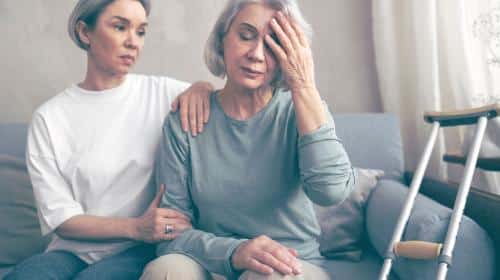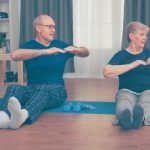Medicaid Dementia Care
Dementia is a global health challenge that affects millions of individuals and their families. Providing quality care for people with dementia requires a multifaceted approach that encompasses medical, social, and financial aspects. In the United States, Medicaid plays a vital role in supporting dementia care for low-income individuals and families. In this article, we will explore the significance of Medicaid in dementia care, the services it offers, and the importance of ensuring dignity and compassion in the provision of care.
Medicaid and Dementia Care
Medicaid is a joint federal and state program that provides health coverage for low-income individuals and families. While Medicaid offers a wide range of services, including hospital visits, doctor appointments, and prescription medications, it also plays a critical role in supporting long-term care services, such as those needed by individuals living with dementia.
Dementia care often involves a spectrum of services, including medical care, memory support, counseling, caregiver training, and assistance with activities of daily living. Medicaid’s coverage for dementia care varies by state, but it typically includes nursing home care, home-based care, and community-based services. These services are crucial in ensuring that individuals with dementia receive the necessary support to maintain their well-being and quality of life.

Home-Based Care
Medicaid’s support for home-based care is particularly significant for individuals with dementia. Many individuals prefer to remain in familiar surroundings, surrounded by loved ones, as they navigate the challenges posed by dementia. Home-based care services covered by Medicaid can include home health aides, skilled nursing services, therapy sessions, and respite care for caregivers.
These services allow individuals with dementia to receive the necessary medical attention and assistance with daily activities while remaining in the comfort and familiarity of their own homes. Furthermore, Medicaid’s coverage of respite care provides caregivers with much-needed relief, reducing stress and promoting their own well-being.
Nursing Home Care
For individuals with advanced dementia or those who require round-the-clock care, nursing homes can provide a safe and supportive environment. Medicaid is the primary payer for nursing home care in the United States, ensuring that low-income individuals with dementia have access to these facilities.
Medicaid’s coverage for nursing home care includes room and board, medical care, rehabilitation services, personal care assistance, and specialized dementia care. It is essential to ensure that nursing homes offer person-centered care that respects the dignity and autonomy of individuals with dementia.
NHTD
Individuals with dementia can also have support from the NHTD program. Nursing Home Transition and Diversion is a Medicaid Waiver program, the aim of this program is to assist people with disabilities and seniors to live in their homes or community instead of a nursing home. The program can provide funding for assistive technology, which can include devices to help manage safety concerns related to dementia, such as alarms and monitors. The program can also provide funding for modifications to the home to make it safer and more accessible for someone with dementia. This could include things like adding grab bars, improving lighting, or even creating a secure outdoor area.
Dementia care near me NY
Medicaid plays a crucial role in supporting dementia care for low-income individuals and families. Its coverage of home-based care and nursing home services enables individuals with dementia to receive the necessary support while maintaining their dignity and quality of life. By promoting person-centered care and prioritizing compassion and dignity, Medicaid can contribute to a more inclusive and supportive healthcare system for those living with dementia. It is essential that policymaker. If you need support with your healthcare, please contact our qualified home care agency, Angel Care Inc., located in New York. We will provide all necessary recommendations and offer qualified assistance. Rich us by phone 917-507-7500 or e-mail: [email protected]

Stroke recovery time varies greatly among patients, depending on several factors, such as the type and severity of the stroke, the area of the brain affected, the individual's age, their overall health status, and the quality of immediate medical intervention and subsequent rehabilitation. Here's a general timeline, though it's important to understand it can vary greatly for each person: First few days after a stroke: Immediate medical treatment is crucial in this period. For some stroke survivors, improvements may be seen in the first few days as swelling in the brain reduces. The extent of the damage can be assessed more accurately after this point. First few weeks to months: This period typically involves intensive rehabilitation, and significant recovery may occur. This is attributed to the brain entering a 'hyperplastic state', in which it adjusts and responds to alterations and injuries brought about by the stroke. During this phase, interventions such as physical, occupational, and speech or language therapies are frequently implemented. Six months to a year: Although the most rapid recovery typically happens in the first three to four months, many stroke survivors continue to improve in the following months. The rate of recovery may slow down but does not stop. One year and beyond: Recovery can continue for years after a stroke, and it's important to maintain a consistent routine of physical, occupational, and cognitive therapy. Improvements might be slower and more incremental at this stage. It's important to note that while many stroke survivors regain independence, some may have lasting impairments that require long-term care or assistance. Goal of stroke recovery The primary goal of stroke recovery is to help the survivor become as independent as possible and return to their previous level of functioning, or as close to it as they can. The specific goals of stroke recovery, however, depend on the severity and type of stroke and the individual's health status and lifestyle before the stroke. Here are some common goals for stroke recovery: Regaining Physical Function: This can include improving strength, balance, coordination, and mobility. It often involves physical therapy exercises to help the individual walk, move, or use an affected limb again. Improving Speech and Swallowing: If the stroke affected areas of the brain responsible for speech and swallowing, speech therapy can help improve communication abilities and manage swallowing difficulties. Improving Cognitive Function: This can involve exercises and activities to improve memory, attention, and problem-solving skills, as well as other mental functions affected by the stroke. Managing Emotional Health: Stroke survivors often experience emotional changes and mental health challenges such as depression or anxiety. A goal of recovery may be to support mental health through counselling or medication. Preventing Another Stroke: This involves managing risk factors such as high blood pressure, high cholesterol, diabetes, and obesity. It may involve lifestyle changes, including diet and exercise, and possibly medication. Promoting Independence: This involves working towards the individual being able to carry out daily activities on their own, such as dressing, eating, and using the bathroom. Occupational therapy can be very helpful for this. Improving Quality of Life: This is a broad goal that involves enhancing the survivor's social activities, hobbies, relationships, and overall enjoyment of life. Support groups and leisure activities can help in this area. Educating the Survivor and Family: Understanding stroke, its effects, and the recovery process is crucial for both the survivor and their family. This can help them make informed decisions about care and treatment, and manage expectations about recovery. These goals can change over time, depending on the survivor's progress and changing needs These objectives are frequently accomplished through a multidisciplinary strategy, encompassing the collective efforts of physicians, nurses, physical and occupational therapists, speech-language pathologists, dieticians, psychologists, and social workers. In this recovery journey, the role of the survivor's family and support system is integral and highly significant. Furthermore, a multidisciplinary approach that includes doctors, nurses, physical therapists, occupational therapists, speech therapists, nutritionists, home health aide and psychologists is often needed for effective stroke rehabilitation. Moreover, stroke survivors are at higher risk of having subsequent strokes, so ongoing medical care aimed at stroke prevention is crucial. Lifestyle changes, such as eating a healthy diet, getting regular exercise, quitting smoking, and managing blood pressure, cholesterol, and diabetes, can help reduce the risk of another stroke. All timelines time from a stroke are approximations, and recovery can be influenced by numerous factors. Always consult with a healthcare professional or a rehabilitation specialist for personalized information about stroke recovery. If you need help in home care for your loved one our home care agency Angel Care Ink. here to help. Reach us by phone at 917-507-7500 or by e-mail at [email protected].

As we age, maintaining a strong and healthy core becomes increasingly important for overall well-being and independence. Abdominal exercises for seniors offer a range of benefits, helping to enhance posture, balance, and functional strength. Before undertaking any of the listed exercises, please consult physician. Angel Care physiotherapists assist patients through every stage of recovery, from the initial diagnosis to the restorative and preventive phases. Effective Core Strengthening Exercises for Seniors: Enhance Your Core Health! Maintaining a strong core is vital for seniors to enjoy a healthier and more active life. Here's a gentle routine of core-strengthening exercises tailored for older adults: Chair Crunches: Sit comfortably in a chair with your back straight. Place your hands behind your head and gently lift your right knee towards your chest while crunching your torso slightly. Lower your leg and repeat on the other side. Aim for 2 sets of 10-12 repetitions. Seated Rotation: Sit on a chair with your back straight and feet flat on the floor. Place your hands on your hips and gently rotate your upper body to the right, then to the left. Perform the exercise in a controlled manner for 2 sets of 12 repetitions. Leg Marches: Lie on your back with your arms by your sides. Lift one leg off the ground, bending the knee slightly, and then lower it back down. Alternate legs and continue the marching motion for 2 sets of 10-12 repetitions. Strengthening Your Core for a Healthier Life By incorporating abdominal exercises for seniors into your daily routine, you can experience several key benefits: Improved Posture: Strengthening your core muscles with abdomen exercises for seniors helps support your spine and promotes better posture. This can reduce the risk of developing posture-related issues and back pain. Enhanced Balance and Stability: Belly exercises for seniors and stomach exercises focus on the muscles responsible for balance. Strengthening these muscles can help prevent falls and improve overall stability. Increased Functional Strength: Engaging in tummy exercises for seniors and other core-strengthening exercises enhances your functional strength, making everyday activities easier and more manageable. Pain Management: Strengthened core muscles can alleviate lower back pain, a common issue among seniors. Regular core exercises can help reduce discomfort and improve overall mobility. Boosted Confidence and Independence: As you become more adept at these abdominal exercises, your confidence in your physical abilities will grow, leading to greater independence in daily activities. Before performing any of the exercises mentioned above, be sure to consult with your doctor. If you or your loved one requires home care, team Angel Care Agency is ready to help and provide recommendations, offer qualified nurses and support for you. Contact us at 917-507-7500 or via email at [email protected] to take charge of your well-being and lead a fulfilling life with improved core health.



